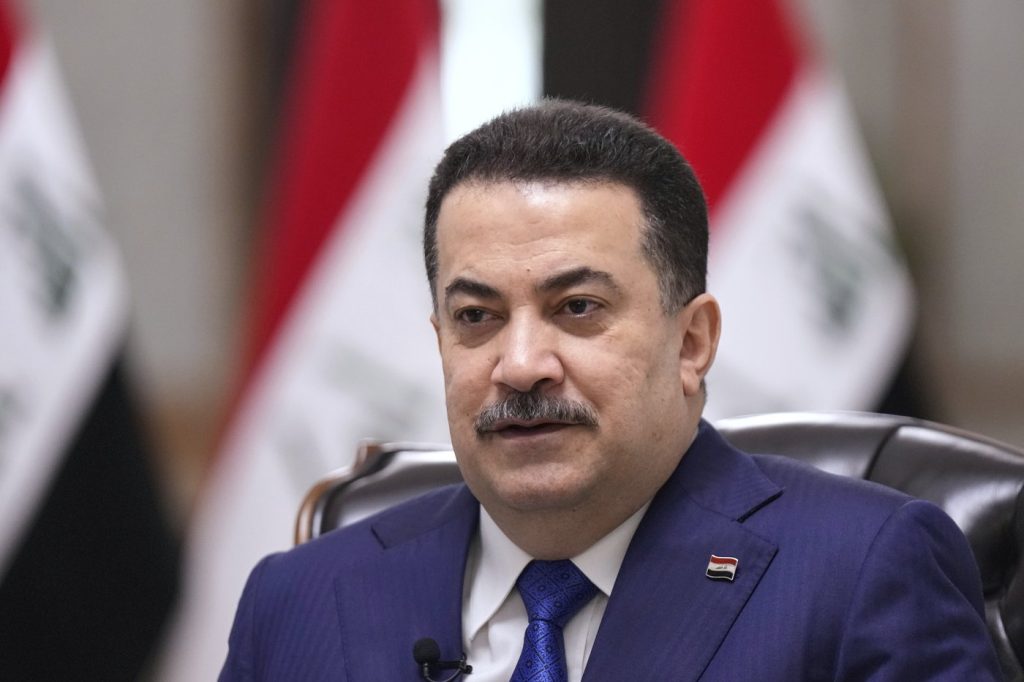BAGHDAD (AP) In a significant move, Iraq's Prime Minister Mohammed Shia al-Sudani has approved comprehensive disciplinary and legal actions against high-ranking commanders of a paramilitary force. This decision follows violent clashes between gunmen and federal police at a government facility in Baghdad’s Karkh district, which resulted in three fatalities last month.
The violent incident occurred on July 27, when armed men assaulted the agricultural directorate in Karkh. The confrontation was reportedly triggered by the ousting of the previous director, who had been implicated in corruption, and the appointment of his successor.
A government-commissioned investigation revealed that the former director had enlisted members of the Kataib Hezbollah militia to conduct the attack after losing his position. Sabah Al-Numan, a spokesperson for Prime Minister al-Sudani, elaborated on the findings in a statement released Saturday. In response to the investigation, al-Sudani, who concurrently serves as commander in chief of the Iraqi armed forces, mandated the establishment of a committee tasked with investigating the raid further.
Kataib Hezbollah operates as part of the Popular Mobilization Forces (PMF), a grouping of predominantly Shiite militias that was formed to combat the Islamic State (ISIS) as it unleashed havoc across Iraq over a decade ago. Although the PMF was officially integrated under the command of the Iraqi military in 2016, its various factions continue to maintain considerable autonomy. Certain groups within the PMF, including Kataib Hezbollah, have engaged in drone strikes targeting U.S. military bases in Syria.
The specific units involved in the Karkh attack were the 45th and 46th Brigades of the PMF. In light of this involvement, al-Sudani has endorsed proposals that include the dismissal of commanders from these brigades, refers all parties associated with the raid to judicial authorities, and initiates an inquiry into "negligence in leadership and control duties" within the PMF command structure. The investigation also highlighted significant structural deficiencies within the PMF, indicating the existence of factions that operate outside the established chain of command.
The relationship between the Iraqi government and the PMF has been a source of contention, particularly in the context of U.S.-Iraq relations, as the Iraqi government seeks to balance its diplomatic ties with both Washington and Tehran. Currently, the Iraqi parliament is debating legislation aimed at formalizing the relationship between the military and the PMF. This proposed legislation has raised concerns among U.S. officials, who classify some factions within the PMF, such as Kataib Hezbollah, as terrorist entities.
In an interview with The Associated Press conducted the previous month, al-Sudani defended the controversial legislative efforts, asserting they are a part of a broader initiative to ensure that all armed forces remain under state control. He emphasized the necessity for security agencies to operate within legal frameworks, holding them accountable for their actions.
This unfolding situation illustrates the complex dynamics at play within Iraq’s political and security landscape, particularly regarding the influence of paramilitary groups and their relationship with the state. The actions taken by Prime Minister al-Sudani to address accountability and governance may serve as a critical step toward stabilizing Iraq's internal security and reinforcing the authority of the central government.











